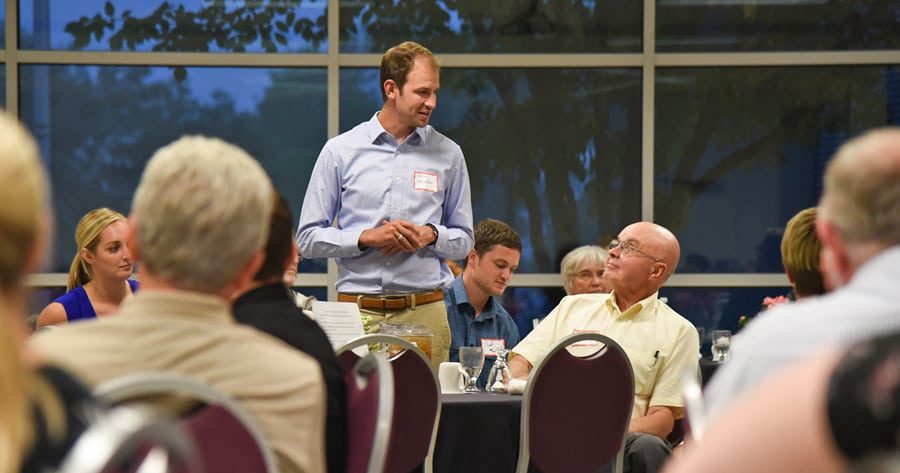
Home » WSU College of Medicine shows glimpse into medical education need
WSU College of Medicine shows glimpse into medical education need

September 14, 2017
A new overview of the Washington State University Elson S. Floyd College of Medicine charter class shows it is made up of a strong percentage of female, low socioeconomic status and first generation students.
The class, a group of 60 students who are current residents of or have significant ties to Washington, represent a population of students who would otherwise have been forced to go out of state for their medical educations.
Selected from more than 700 applications that were submitted in 27 days – the timeframe between receipt of preliminary accreditation and the application submission deadline – competition was stiff.
“Our recruitment cycle for this first class was extremely truncated,” said John Tomkowiak, founding dean of the Elson S. Floyd College of Medicine. “While most schools began recruiting in the summer, we couldn’t begin recruitment until November 2016. Despite the challenge, the fact that we received more than 700 applications in less than a month only highlights the pent-up need for medical education in this state.”
The college focused on drawing students from a wide cross-section of rural and urban underserved areas across the state to increase the likelihood they will return to their communities to practice medicine. It then selected students from 15 of the state’s 39 counties, with 15 percent of the class hailing from rural communities.
“We are proud of the highly accomplished group of students we selected for this charter class,” Tomkowiak said. “As we continue to grow in awareness and reputation, as well as build our recruitment efforts across the state, we anticipate the applicant pool and matriculated classes will continue to impress.”
The Elson S. Floyd College of Medicine held its first clinical intersession week and homestay community night for the charter class of medical students on Sept. 6. To connect and engage students in the communities where they will spend their third and fourth years of training, the homestay program enables community members to house students during their intersession weeks and immerse them in the life and culture of the local community.
The event was expected to bring together the 15 medical students who will be based in the Tri-Cities and the local host families for the first time.
Demographics
Here’s a profile of the charter class:
- Females: 34 (56.7 percent)
- Legal Washington residents*: 57 (95 percent)
*The 5 percent non-legal Washington residents must demonstrate they are from Washington by meeting at least three of four requirements: born in Washington, childhood address in Washington, graduated from a Washington high school, parent/guardian currently living in Washington.
- Childhood in a rural Washington county: 9 (15 percent)
- Childhood in a medically underserved Washington county: 58 (96.7 percent)
- Washington counties represented: 15, including Clallam, Clark, Cowlitz, Franklin, Grant, King, Pacific, Pierce, Snohomish, Spokane, Stevens, Thurston, Whatcom, Whitman and Yakima
- First-generation college graduate*: 11 (18.3 percent)
*bachelor’s degree
- Low socioeconomic status: 20 (33.3 percent)
- Average age: 26 / range 21-36
- Advanced degrees: 7 (11.7 percent)
For more information, visit medicine.wsu.edu.
Local News Education & Training





